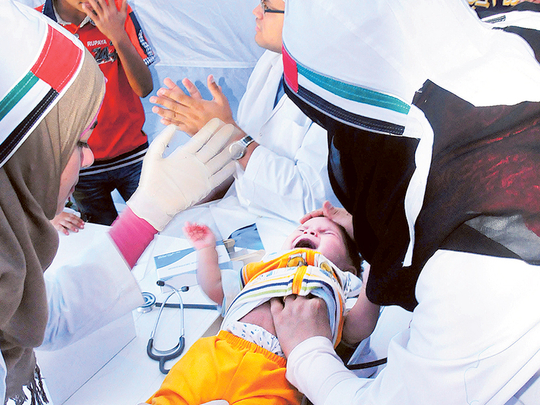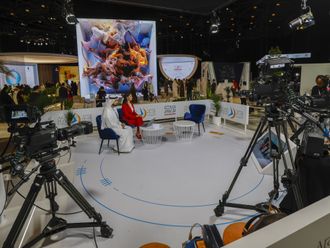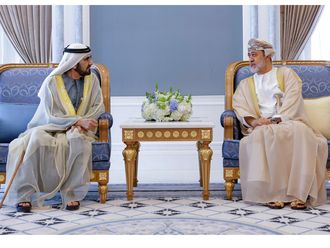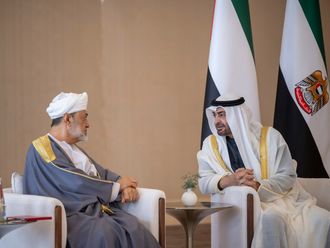
Abu Dhabi: Eleven years after the passing away of UAE’s founding father, Shaikh Zayed Bin Sultan Al Nahyan, his legacy remains the guiding spirit of his country, which has become the world’s largest humanitarian donor.
His benevolence and the socioeconomic shift he engendered during his 33-year rule continue to inspire every facet of development in the UAE. Ramadan 19 is marked as Shaikh Zayed’s death anniversary.
“In its first 5-year plan in 1968, Abu Dhabi dedicated 10 per cent of its funds to aid friendly and sisterly countries. Shaikh Zayed firmly believed that Abu Dhabi’s resources should be put to the service of humanitarian work and helping sisterly and friendly countries, notwithstanding his country’s lack of the most rudimentary prerequisites of a modern state,” said Zaki Nusseibeh, the man who witnessed Shaikh Zayed’s long journey of generosity and giving for more than 30 years.
Nusseibeh, who worked for more than 30 years as an interpreter for Shaikh Zayed, quoted Sir Stewart Crawford, the British political resident in the Gulf region, as saying in 1969 that those who criticised Shaikh Zayed for his extreme generosity, don’t realise that it is Shaikh Zayed’s second nature to give without expecting any returns.
“Shaikh Zayed lit a candle of light and hope for those needy people whether they were children, families or whole nations. [Former US] President Carter told me that he had found Shaikh Zayed’s benevolent hand and donations in every remote village and small town he had visited in Africa,” Nusseibeh said.
Shaikh Zayed had established the Abu Dhabi Fund for Arab Economic Development (ADFAED) which dedicated a segment of oil windfall to over 50 less fortunate Muslim countries in Africa and Asia.
At a time when he was still laying the foundations of the UAE’s union, charity and giving were also on his list of priorities. The inception of the fund marked a major milestone at that time and sent a strong message to the whole world that the UAE cherished its philanthropic and charitable heritage, that this federation of seven emirates, even during its nascent stages, aspired to cooperation and integration for the benefit of all the peoples and nations of the world.
Shaikh Zayed was in complete synergy with Islam’s compassion for the needy. He never hesitated to extend assistance to the global community and was a pioneer in humanitarian work.
From 1971 to 2004, the UAE gave Dh90.5 billion worth of aid in various forms to 117 countries around the world.
Government aid accounted for the largest percentage at over Dh73 billion, followed by the Abu Dhabi Fund for Development, an autonomous institution owned by the Abu Dhabi Government to help developing countries achieve growth and development through assistance in the form of concessionary loans, at Dh15.3 billion.
As well as assisting the less fortunate, Shaikh Zayed was also predominantly occupied with the question of Palestine. A pan-Arab nationalist, he continuously voiced his concern and discontent with the core issue of Arab concern, and repeatedly called upon the international community to fairly source a solution to the conflict.
If during the early 1970s Abu Dhabi’s financial reserves were modest, it was because Shaikh Zayed dedicated a significant portion — what amounts to hundreds of millions of dollars — to Arab states confronting Israel. During the 1973 October War, Shaikh Zayed supported King Faisal Bin Abdul Aziz, who pledged significant financial support to both Egypt and Syria. Not only that, but he also supported the oil embargo on the United States and the Netherlands after Richard Nixon authorised a massive military transfer to Israel. “Arab oil is not dearer than Arab blood,” said Shaikh Zayed during the events.











